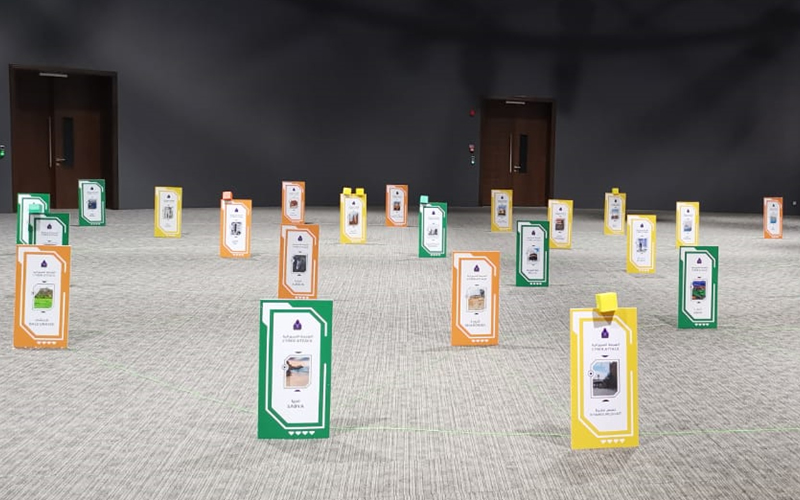
The challenge facing work teams!!
Teamwork makes dreams come true, but sometimes teamwork can be a challenge!! Here is a list of some of the most common problems that organizations face in dealing with work teams:
- The difficulty of evaluating work teams without relying on accurate scientific methodologies
- Methods of building different work teams according to the needs of the organization
- Wasting organization resources by adopting a trial and error methodology, while building work teams.
- Building teams in an unscientific way increases the risk rate.
- Difficulties and/or stumbling while trying to achieve the organization’s operational goals.
- The deterioration of the work environment and communication between members of the different teams.
- Despite the difficulties of teamwork challenges, there is a solution.
Team assessment and team building service
A qualitative and integrated experience that achieves clear results and outputs in terms of developing one-team skills through assessment tools, visual models and simulation experiments, as well as teamwork games based on scientific foundations and concepts that combine strategic and managerial expertise.
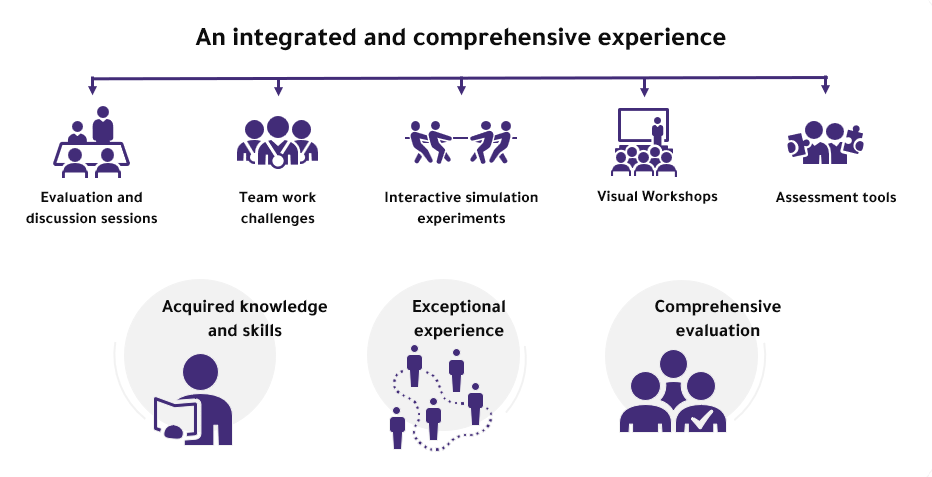
What will you get during this exceptional team building experience?
The exceptional team building experience includes 5 main axes that are designed by studying the needs of the organization or company and determining its upcoming directions so that the experience is customized for the client according to his needs. The experience begins with evaluation activities and ends with a comprehensive report:
1- Accurate scientific evaluation stage
The assessment phase of the Exceptional Team Building Experiment is based on the DISC methodology, which is one of the most important behavioral pattern detection methodologies, enabling accurate and reliable assessment of individuals. This methodology finds great popularity in organizations and companies around the world, thanks to:
- Management research and modern management sciences.
- Psychology reports and research.
- The PDA scale was developed specifically for the discovery and development of team members.
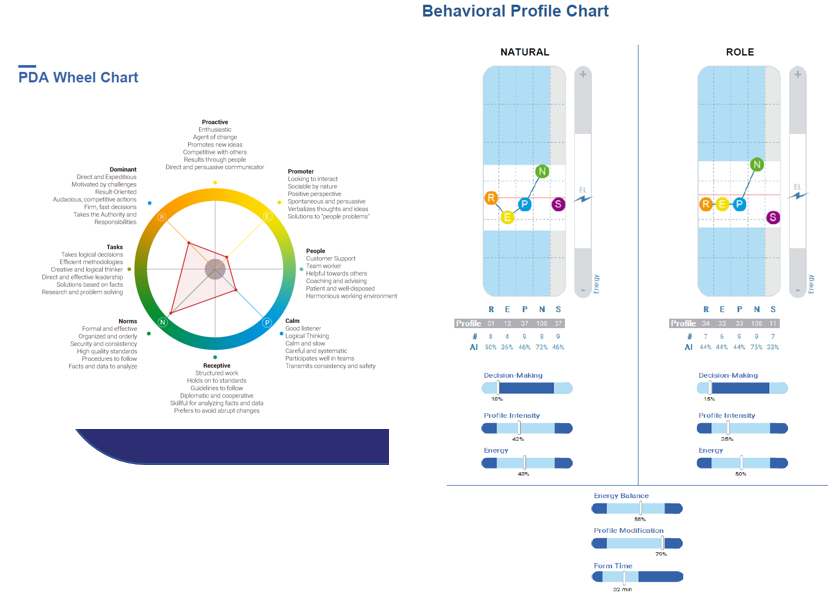
Workshop stage
Based on careful evaluation at the beginning of the exceptional team building experience, we work on designing workshops with a specific topic related to the goals and aspirations of the organization. We also adopt a set of visual models appropriate to the characteristics of each team, in order to generate ideas and create an effective and enjoyable learning experience.
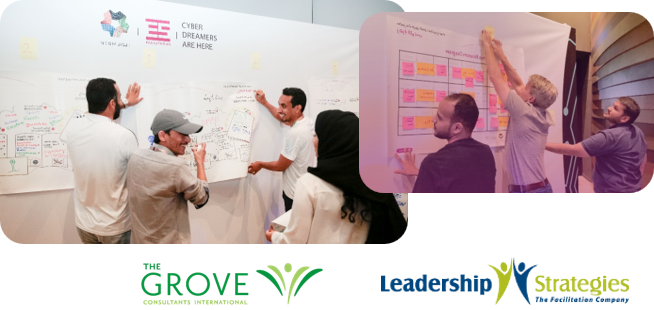
3-Interactive simulation experiment stage
The interactive simulation experience phase is a story journey whose objectives are designed based on:
- Studying the field of the company
- Analyzing the company’s challenges in terms of teamwork and daily tasks
In order for the simulation experience to be built and to be focused on the needs of the client, participants engage in an interactive journey to deal with specific situations as a team through a set of roles and tasks.
The story of the experience develops through the stages, reaches its highest level at the plot point and ends with a set of cognitive lessons that are discussed in the “assessment” session.
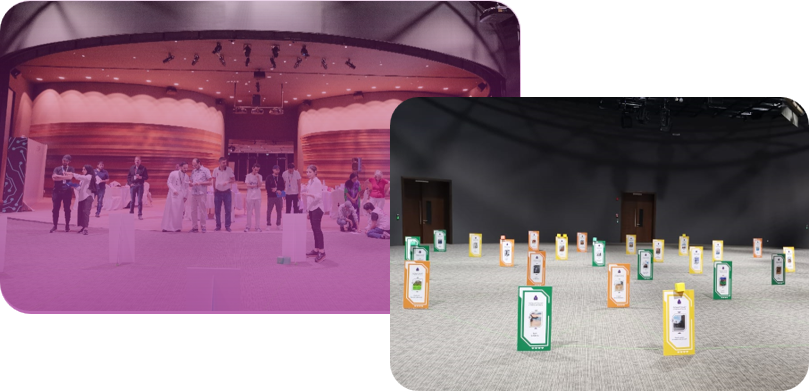
4-Teamwork challenges stage
A set of group challenges characterized by movement and interaction developed in a unified track that enables participants to practice the most important teamwork skills such as:
- Leadership and strategic planning.
- Resource Management.
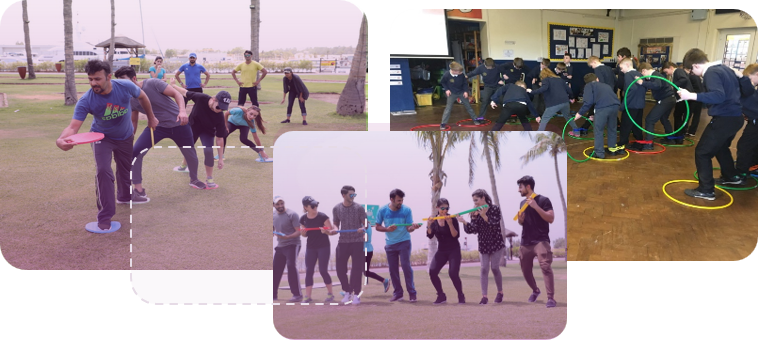
5-Report stage
We build a report based on the most prominent results learned from the workshops and review them in a practical way to the stakeholders, so that the report enables decision makers to understand the work teams and the challenges they face and the possible and supportive opportunities to increase performance in order to achieve the aspirations of the organization.
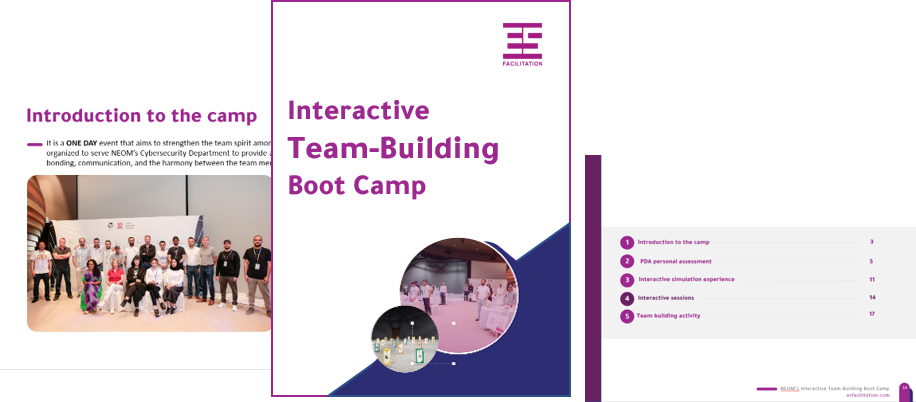
Expected results from exceptional team building experience
The purpose of this experiment is to come up with practical and focused results in a specific period based on global models in building exceptional and great teams. Among these expected results from the experiment, these can be mentioned:
1.Raising the level of information, knowledge and skills on team building and the importance of teamwork.
2.Strengthening the strategy and the cultural pillars of the organization through scientific tools and workshops.
3.Implanting skills in leadership and decision-making.
4.Raising the level of loyalty and belonging within the company.
5.Experience and memories that raise the level of harmony within the same team.
6.Motivation, motivation, motivation.
